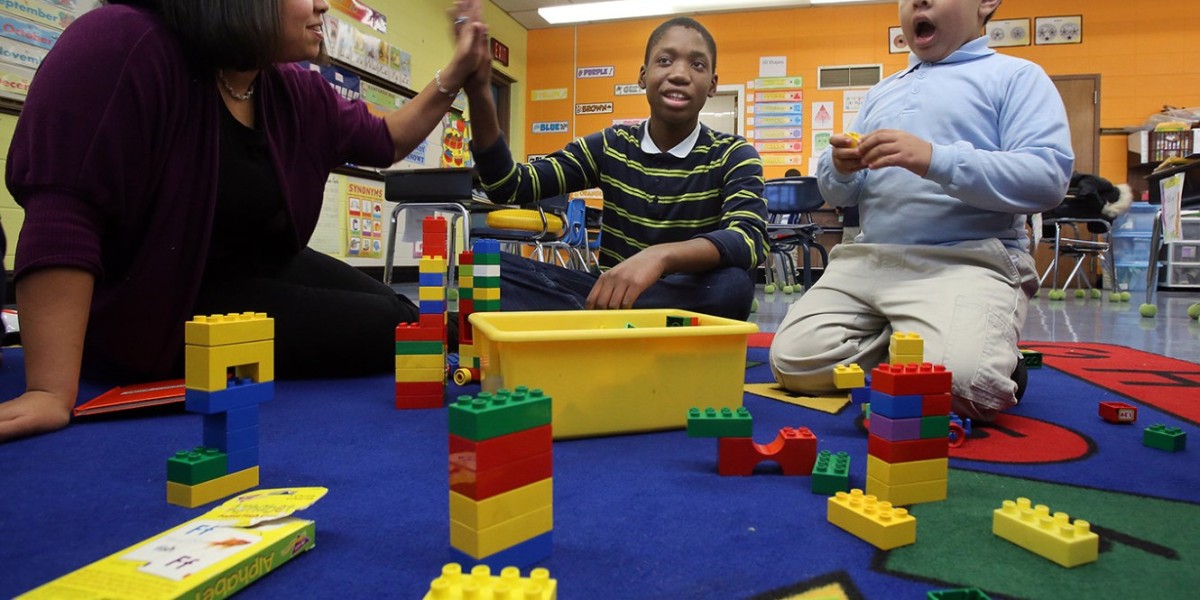Children With Special Needs Berkeley require unique attention, tailored support, and understanding from parents, educators, and society as a whole. Whether it's a learning disability, physical impairment, emotional disorder, or developmental delay, each child's needs are distinct. This blog post aims to provide insight into the various aspects of raising and educating children with special needs, focusing on practical strategies and resources to ensure their growth and development.
Identifying Special Needs Early
Early identification of special needs is crucial in providing the necessary interventions and support. Parents and educators should be vigilant in observing developmental milestones, behavioral patterns, and learning abilities. Common indicators of special needs include:
- Delayed speech or language skills
- Difficulty in motor skills or coordination
- Behavioral challenges, such as hyperactivity or aggression
- Struggles with social interactions and communication
- Learning difficulties, such as trouble reading or solving math problems
Early diagnosis through professional assessment can lead to timely intervention, which is often more effective.
Tailoring Education to Fit Their Needs
Education for children with special needs should be customized to their specific requirements. An Individualized Education Plan (IEP) is a crucial tool in this process. The IEP outlines personalized goals, accommodations, and modifications that cater to the child's unique learning style.
Inclusive Education: Many schools now adopt inclusive education, where children with special needs learn alongside their peers. This approach fosters social integration and helps children develop better communication and interpersonal skills.
Specialized Programs: In cases where inclusive education isn't suitable, specialized programs provide focused attention. These programs often involve smaller class sizes, specialized teaching techniques, and tailored curricula.
Assistive Technology: Tools such as speech-to-text software, audiobooks, and adaptive devices can greatly enhance learning experiences for children with special needs.
Building a Supportive Home Environment
Parents play a pivotal role in the development of children with special needs. Creating a supportive and nurturing home environment is essential for their emotional and psychological well-being.
Routine and Structure: Children with special needs often thrive in structured environments. Establishing a consistent daily routine can provide them with a sense of security and predictability.
Positive Reinforcement: Encouraging and rewarding positive behavior helps build self-esteem and confidence. Celebrating small achievements can motivate them to overcome challenges.
Open Communication: Regularly talking with your child about their feelings, struggles, and achievements fosters trust and emotional connection. It's also important to maintain open communication with teachers and therapists to ensure a cohesive approach to their development.
Accessing Professional Support
Professional support, including therapists, counselors, and medical practitioners, is crucial for addressing the specific needs of children with special needs.
Speech and Language Therapy: Helps children with communication difficulties improve their language skills.
Occupational Therapy: Focuses on developing fine motor skills, sensory integration, and daily living skills.
Behavioral Therapy: Assists in managing behavioral challenges by teaching coping strategies and reinforcing positive behavior.
Physical Therapy: Supports children with physical impairments in improving mobility, strength, and coordination.
Advocating for Your Child’s Rights
Understanding and advocating for your child's rights is essential to ensure they receive the education and support they deserve. Familiarize yourself with laws such as the Individuals with Disabilities Education Act (IDEA) and Section 504 of the Rehabilitation Act. These laws guarantee access to free and appropriate public education and protect against discrimination based on disability.
Community Resources and Support Groups
Connecting with other parents and caregivers of children with special needs can provide valuable emotional support and practical advice. Many communities offer support groups, workshops, and online forums where you can share experiences and learn from others facing similar challenges.
Conclusion
Raising and educating a child with special needs requires patience, dedication, and a proactive approach. By understanding their unique requirements, providing tailored education, and accessing professional support, parents and educators can empower these children to lead fulfilling and successful lives. Every child has the potential to thrive with the right support, and it's our collective responsibility to ensure they have the opportunities they deserve.



